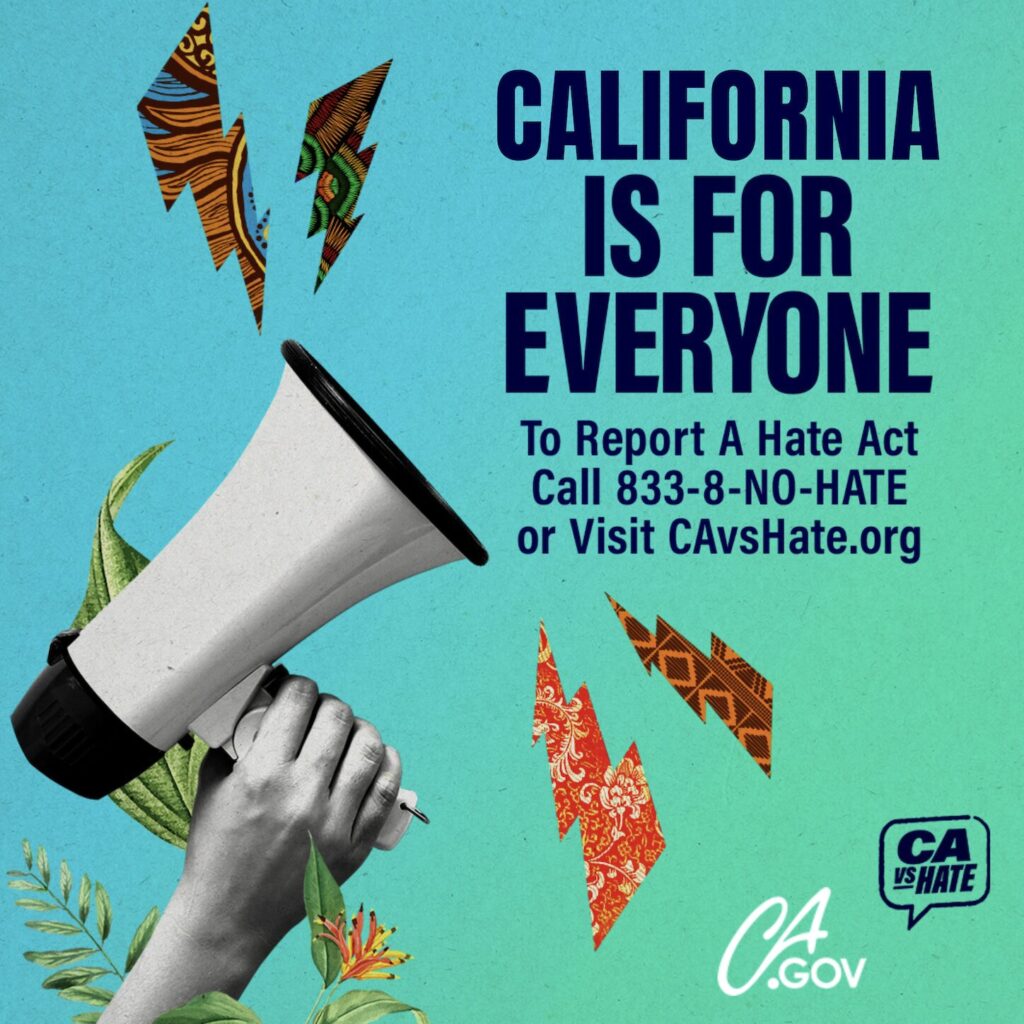
Reported hate crimes in California recently reached their highest levels since 2001 – jumping almost 33% from 2020 to 2021. As the state launches its hate reporting hotline, assessing and improving the processes of responding to incidents of hate, as well as data collection and sharing, will be essential for addressing and combating hate crimes effectively, supporting survivors, allocating resources, and fostering inclusive and safe communities.

In May 2023, the California Civil Rights Department launched CA vs Hate: a multi-lingual, non-emergency hate incident and hate crime reporting hotline and online portal established to support individuals and communities targeted for hate. In its first month, 180 acts of hate were reported via their phone and web portals.



The goals of CA vs Hate include helping individuals and communities targeted by hate identify options for next steps after a hate incident, connecting people targeted by hate with culturally competent resources, and improving hate incident and crime reporting data to enhance prevention and response.
While hate crime statistics are reported on a state and federal level each year, many hate crimes have historically gone unreported due to a variety of factors, including fear of retaliation, lack of culturally competent resources, and distrust of law enforcement. CA vs Hate aims to help address some of these issues by offering people targeted by hate — and their communities — additional resources to report acts of hate through a community-centered approach that does not require engagement with the criminal legal system.
The Possibility Lab and CA vs Hate are working together over a two-year period to assess and improve current practices of intake, data collection, and data reporting on hate crimes and hate incidents in California, both internally and with respect to data received from and shared with other state and local entities. In four interrelated phases of work, we are creating new ways of gathering and sharing data with the public, affected communities, and other stakeholders, guided by evidence-based practices and informed by California’s diverse communities.
Ultimately, the goal of this project is to improve the state’s ability to accurately gather and responsibly share high-quality, accurate, and timely information about hate crimes, in order to better serve those targeted by hate, their families, and the broader California public.
